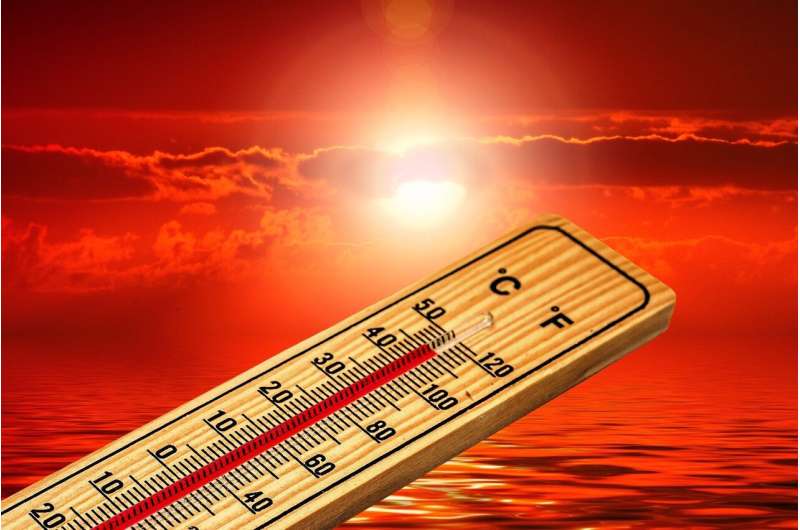This article has been reviewed according to Science X's editorial process and policies. Editors have highlighted the following attributes while ensuring the content's credibility:
fact-checked
peer-reviewed publication
trusted source
proofread
Excessive heat and its impact on mental health

Extreme heat this summer is affecting people across the country—mentally as well as physically. While heat can make anyone irritable, the impact can go beyond that, especially for people with mental health conditions. A Baylor College of Medicine psychiatrist explains how heat affects mental health.
Excessive heat causes changes in emotions and behavior that can result in feelings of anger, irritability, aggression, discomfort, stress and fatigue. Heat alters those behaviors because of its impact on serotonin, the primary neurotransmitter that regulates your mood, leading to decreased levels of happiness or joy and increased levels of stress and fatigue.
The most vulnerable groups affected by heat and mental health include people with preexisting conditions and people who use substances like alcohol. People who already suffer from stress, anger or anxiety will experience increased serotonin. If people use substances, especially alcohol, they need to be more hydrated. Combining substance use with heat requires even more hydration.
"All mental illnesses increase with heat because it results in more fatigue, irritability and anxiety, and it can exacerbate depressive episodes," said Dr. Asim Shah, professor and executive vice chair in the Menninger Department of Psychiatry and Behavioral Sciences at Baylor.
Signs of heat impairing mental health start with irritability, decreased motivation, aggressive behavior and sometimes mental fogging. In worse cases, it can cause confusion and disorientation. While avoiding the heat may not be possible, Shah recommends hydrating with electrolytes and keeping your head covered when going outside. In addition, pour some water on your head to cool down and try doing things in the shade. If you normally go for walks outside, move them inside by walking in the mall or a large space with air conditioning.
If you take medications, consult with your provider before mixing your dose with excessive heat. Some medications for mental health, such as lithium for bipolar patients, might not pair well with heat. Lithium goes through the kidney, so if you sweat more, levels of lithium fluctuate.
"If you are out in the heat and using lithium, levels may fluctuate. In that scenario, we have to be very careful and either adjust the dosage of lithium or avoid heat," he said.
Climate changes, including droughts and extreme changes in temperature, can cause negative effects by increasing pollutants and allergens and worsening air quality. These worsen mental health issues like depression, anxiety or PTSD. Some studies show that exposure to any natural climate disaster can increase the risk of depression by more than 30%, anxiety by 70% and both by over 87%.
"Children are a vulnerable population due to their physical and cognitive immaturity. They are exposed to more pollutants and allergens as they spend more time outdoors," Shah said.
Previous studies on emergency room visits explore hospital visits due to heat and mental health. A study in JAMA Psychiatry reported about an 8% increase in emergency visits due to the effects of heat on mental health. If you feel affected by severe heat, speak with your primary care provider or mental health specialist.




















